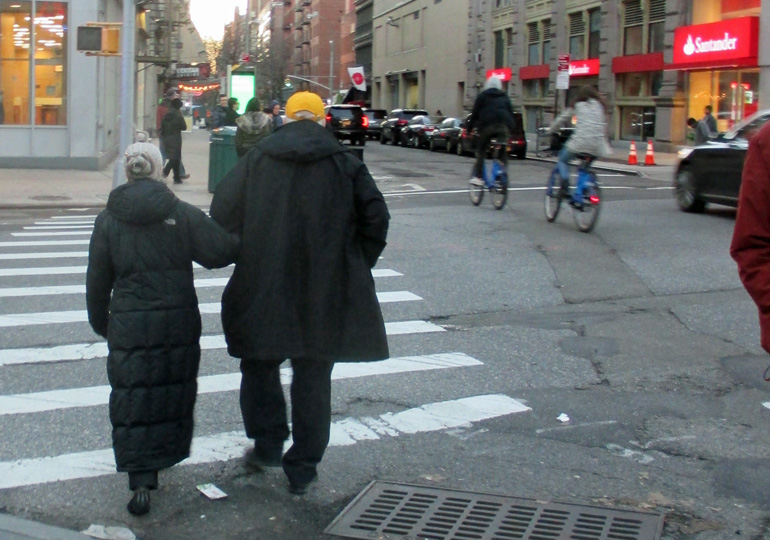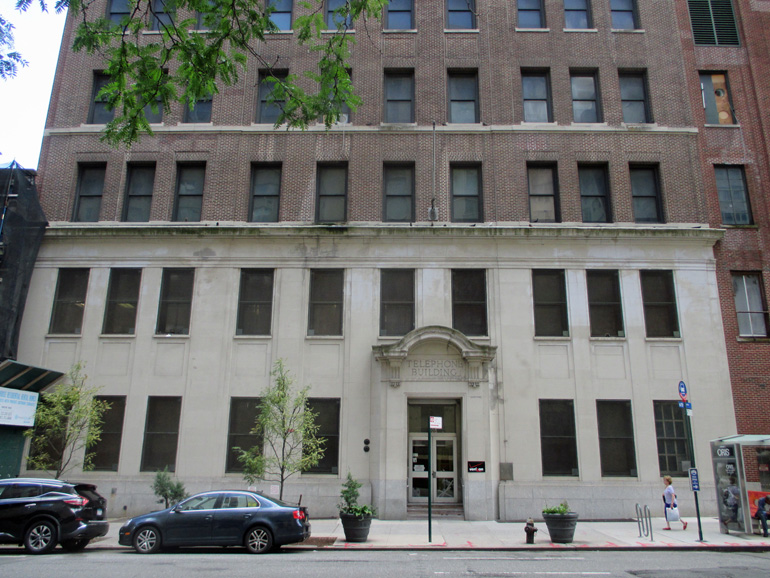1, 2, 6, 8, 9, 10, 13, 15, 17, 20, 22, 24, 27, 30 and 31 March

Wednesday 1st
How curious: only a day or so after I finish re-reading Jonathan Sumption’s The Albigensian Crusade, the Times runs a front-page article about the draining vitality of charming downtown Albi, a town almost directly aligned with Paris longitudinally but situated at the other end of the country, closer to the southern border of France than the capital is to its northern one. Modern lifestyles, intertwined with the trends of modern commerce, no longer find quaint but narrow streets worth the trouble. There is a mall outside Albi, with its hypermarché and the other conveniences that go with parking lots. Just to the north of the mall, Google Maps shows me, there’s a neighborhood of suburban houses that reflects American land-use habits. The paradox of contemporary democracy is that Albi’s suburbs are likely to be inhabited by supporters of Marine le Pen who want to keep France French while at the same time abandoning its physical legacy.
It’s hard to scold. Who is to bear the cost of keeping an inconvenient legacy alive? I have heard of very remote, very small villages in the Auvergne that have been completely repopulated by artists and artisans, but beyond the gratification of knowing that such places are still inhabited, it is difficult to regard them as truly civic organisms. And yet, looking forward to economies that, out of necessity if nothing else, are more looped than growth-oriented, and thereby more synchronized to the rhythms that built Albi a thousand years ago, one hopes that the old towns will still be standing, ready to be reoccupied.
***
I’ve been thinking a lot about “the toilet test.” Do you know how a flush toilet works? Probably you’ve never given it much thought. You don’t, after all, need to know. At the most, you are familiar with the problem of the “running” toilet, whose tank fails to fill because the flap doesn’t close when the tank is empty. But the ingenious course that the water follows when it leaves the tank, from the bowl’s perforated inner rim to the “S” hump in the pipe that drains the bowl, may well have failed to engage your attention. (If you’re a man, you may have noticed, without thinking why, that urinals don’t involve bowls of standing water.) Proud as I was to have been aware of these features when I read Elizabeth Kolbert’s fascinating piece about our cognitive shortcomings, it took a further week for me to see that indoor plumbing constitutes the earliest domestic robotic system. Flush toilets not only perform repetitive tasks with predictable reliability but also relieve human beings of an array of disagreeable tasks, the former existence of which most of us have completely forgotten. Carrying pails of water and emptying chamber pots used to be parts of a job, for oh so much vaster a stretch of human history.
Repetitive tasks are the essence of labor. With work, in contrast, there is always an edge of unknown possibility. Sometimes, as in the writing of fiction, that edge can be vast and teeming, but for most jobs it is quiet and off in a corner. An engineer figures out, one day, a more effective configuration, but this small addition to professional knowledge rests on broad foundations of established understanding. Most work is just as repetitive as labor, but the possibility of engagement at the edge makes it intriguing. A successful working career might well be defined as one in which the frontier of the foreseeable never closes.
Long before the Industrial Revolutions, artists were self-consciously committed to this notion of work. The idea of the art-work was most explicit in the publication of music, in which compositions were gathered together and given an opus — work — number. Art was the supreme form of work. Our idea of art is shaped by the presumption that great works of art are somehow unlike all others; no matter how much labor was involved in the production of a painting, the result is quite pricelessly distinctive, as with any of Vermeer’s thirty-odd masterpieces. The pricelessness of an artwork is manifest in our sense of its significance, which is a distillation of the atmosphere of the creative edge that we can appreciate without doing any work at all.
After art, we honor design, which is an idea that can be mass-produced. Here the work — the creation of the design — and the labor — its mass-production — stand in stark contrast. At one end, we have Sir Jonathan Ive in his shop at Apple; at the other, we have the workers at FoxConn in China who are about to replaced by robots. (Let’s not forget the engineers who design the robots!) Ultimately, it seems, all labor will be performed by machines, not because human beings find it tedious and unpleasant (although they do) but because machines are better at laboring. Far be it from me to claim that work, with its imagining edge, will always remain a human exclusive. But it seems clear that meaning and significance are the projections of work that human beings find it interesting to do as well as to consider. The history of the world is the record of significant ideas and objects, only some of which are generally significant at present. Historians of the world specialize in imagining the significance that most surviving ideas and objects have lost. The true history of humanity looks more like the history of art than it does the history of war. War is perhaps merely the labor part of history.
***
Thursday 2nd
My respect for The New Yorker has had its ups and downs over the past fifty-five years. The variance has never been large, but I’m feeling unusually out of sorts with it these days. I can’t say that I disagree with the magazine’s assessment of Donald Trump himself, but I don’t see the need to shout it from the housetops. The New Yorker’s editors clearly do.
It occurs to me that what I disagree with them about is the answer to this question: Who won the election? Donald Trump? He’s the man in the Oval Office, certainly. But as I see it, the winner of the 2016 presidential election was the bloc of Americans who loathe the liberal élite. Now, this liberal élite used to be very shy. It was almost impossible to find anyone who would admit to belonging to it. The election changed that. The liberal élite took to the streets, howling, united in its visceral hatred of the president. The president’s supporters were thrilled by the sight, which confirmed what they thought all along. The liberal élite is not as divine, not as above-it-all, as it thought it was. It does not transcend petty passions. It’s just as raw, just as angrily human, as the Americans it deplores. When Adam Gopnik all but raged about a glitch in the simulated universe that we’re clearly living in, a bug in the Matrix, I had to chuckle. In your dreams, Adam.
Three Republican presidents were elected by the hope that they would deliver a once-and-for-all kick in the ass to the liberal élite, and all three quailed. Nixon, whose plans for the Republic were truly diabolical, installed a secret tape recorder in the place that Trump reserves for his megaphone. Reagan and Bush II were fronts for established interest groups that needed the liberal élite to serve as a decoy villain. All three were served by able students of public affairs who knew how to work the Overton window, slowly but surely. But none of these presidents had the interests of ordinary Americans at heart, and voters in the late election cycle made it clear that they knew it. They rejected all the candidates who were approved by the Republican Party and insisted on an impossible outsider. Trump may turn out to be as useless to the economic welfare of ordinary Americans as his Republican predecessors, but the sincerity of his hatred of the liberal élite is obviously genuine, and his election has enfranchised that hatred. I believe that the word is ressentiment. Ressentiment won the 2016 election, and the liberal élite has some splainin to do.
Once upon a time, there was a stretch of Three Glorious Decades. It came to an end in the 1970s, when, among other things, fossil fuels ceased to be imperial possessions that could be priced as needed. Since then, the liberal élite that oversaw the postwar economic miracle has lost its balance. That the spike in oil prices came as such a terrible shock to the Western economies shows, I suppose, that the best and the brightest who were running things did not fully understand all of their world’s moving parts. From a wider perspective, they were wrong to assume that postwar boom would go on forever: it was fundamentally a recovery, a return to the status quo ante with some important features upgrades, such as the UN and the offspring of Bretton Woods. But the cornerstone of liberal élite statecraft was that economies can expand indefinitely — indeed, that they must either grow or die! This was folly.
The wonderful thing about the Trente Glorieuses was their ideological purity: it was the economy, and nothing but the economy. You could have a welfare state if you wanted one, and your economy would still grow. When the ride came to an end, the liberal élite made a decision to continue to treat the economy as the center of social life. If the economy could be made to do well, then rising tides would lift all boats, and so on. The liberal élite decided against altering the foundation of social life to accommodate an increased and less optional contribution of non-economic ideas. The weakness of liberalism, since its birth in the ashes of the French Revolution, has always been to shore up property rights in times of crisis. (Indeed, a centerpiece of liberal policy has always been to increase ownership.) In the late Seventies, the liberal course engendered decades of financialization, the “monetization” of almost everything. Truly liberal values and their exponents were compromised by this development; the hypocrisy of liberals was obvious to everyone, which is undoubtedly why no one would admit to belonging to the class.
Liberal thinking is one of the fruits of affluent leisure; people who are very poor or very busy have no time for it. Only those who are gifted with means and imagination have the luxury of trying to understand others’ way of life. I believe that liberals are the truest humanists, not because they are the best people but because they understand and respect the force of weakness in human minds, and are less inclined than other people to stamp their feet and impatiently wish it away. Perhaps liberals shouldn’t belong to the élite at all; perhaps the existence of a liberal élite in my lifetime has been anomalous. If it has come crashing down (which I think it has done), then liberalism itself is in need of repair. Any blame ought to be directed not at its enemies but at the élite itself. As the old New Yorker cartoon had it, “Back to the drawing board!”
***

Monday 6th
Perhaps you’ve heard the story, too. Apparently, it’s cheaper to send Scottish salmon, or maybe shrimp, in freezer containers, to Thailand or China, for shelling or filleting, and then to ship it back, refrozen, for sale in Scottish supermarkets, than it is to process the seafood in Scotland. The amazing efficiency of container shipping, combined with the huge variance in daily wages — £5 in Scotland versus 25 or 50p in Asia — makes economic sense of the 10,000-mile round trip.
It makes a sort of economic sense. It makes economic sense only if you ignore all the other costs, some of them, like that of the oil that powers the ship and keeps the freezers cold, rather short-term figures. (Someday, someday soon, that oil may be priceless.) There is the cost to the state of offshored labor, which at a minimum is reflected in a lowering of Scottish wages (however slight). It completely ignores the degradation of the fish itself, what with two freezings and defrostings, and what with a passage of time that squashes any claim to freshness. Most of all, there is the cognitive cost of training one’s mind to regard this extraordinary routine as an intelligent choice.
I use the word “extraordinary” because, as soon as I thought to mention this story, I felt obliged to check it out. I am no investigative journalist, but the online evidence is not as robust as I thought it would be. Two differently-phrased Google searches produced two stories, one involving cod, dating from 2009, and one involving shrimp, and an outfit called Young’s Seafood, from 2006. (The later story references the earlier.) On the basis of these slim returns, I would hesitate to claim that this crazy tale of mercantilism in reverse was ever a normal way of doing business.
But it did happen, and, as I say, it made sense only if you squinted. In that regard, it is a classically liberal story, one that’s bound to offend almost everybody, because so much of liberal economic thinking is reflected in awkward compromises brokered by liberal politicians. On the one hand, the conservative penchant for free markets is indulged, and on a breathtaking scale. On the other, Asian poverty is eased, and nations are bound more closely together by trade, thus pleasing progressives. But neither conservatives nor progressives can reconcile themselves, in the long term, to jobs lost at home or to grotesque energy footprints. As with many liberal schemes, the social and political benefits are somewhat notional and certainly abstract, while the concrete benefits pile up in the pockets of a handful of “industrialists.” The more unfortunate upshot is that conservatives and progressives can excoriate one another with clear consciences.
It’s like Churchill said: liberal democracy is the worst political system, except for all the others. Liberals have a unique faith in compromise, a readiness to put principle behind pragmatism. But liberal pragmatism is inclined to be sneaky, to hide costs and minimize discomforts. I think that it ought to go just the other way, and, abandoning the lie that social coexistence can be altogether painless, adopt instead a policy of identifying the prices that people are willing to pay. That’s why I think that Ross Douthat’s column in Sunday’s Times was excellently liberal. Douthat proposes scrapping affirmative action programs and granting an annuity to anyone who can prove descent from an American slave. I can think of many dandy modifications, such as, to name only one, diverting annuities to slaves’ descendants who are already doing well economically, granting them instead the right to appoint the annuity to an educational endowment for scholarships. I’d like very much to see the end of affirmative action, which in my view, as an unintended consequence, undermined academic rigor and introduced toxic ideas about relative truth that have now infected our politics. In any case, Douthat’s proposal is free of the smoke and mirrors of typical liberal compromises.
***
Wednesday 8th
Power and superiority — how are these concepts related? I mean, how do people relate them? — for I am not at all interested in an abstract, generalized, philosophical explanation. The answer to the question is not analytical, but, necessarily, historical.
Reading Darryl Pinckney on James Baldwin yesterday, I got it: there is no “Negro,” no “African-American,” no black problem; there is only a white problem.
At the core of his message was always the assertion that there was no Negro problem; there was the problem of white people not being able to see themselves, to take responsibility for their history, and to ask themselves why they needed to invent “the nigger.”
To answer this question, it must be borne in mind that not-white people might have, and might wish to preserve, different cultures, different ways of accenting the inevitable similarities of everyday life. The black man might say to the white man, My life is different from yours, but the difference is not inherent in my genes. This would oblige the white man to reconsider his insistence, made by almost every Founder, that white-skinned men of European background were better-equipped to run things, that they were superior men. If the claim was not genetic, what was it? Why did they not instead attribute their superiority — and I am willing to concede that they were superior, these Founders, as long as it is understood that they were superior to most white-skinned men as well — to education and experience paid for by unusual wealth and/or well-connected friendships?
The white man’s anxiety about the truth of the genetic explanation was demonstrated by the prohibition against teaching slaves to read. If negroes had been genuinely inferior, knowing how to read would not have gained them much. The problem of allowing the wrong people to read is as old as the Roman Catholic Church, which claimed that untrained minds would draw the wrong conclusions from standard works, and that their unorthodoxy was a kind of inferiority. The assumption that the exercise of power ought to be reserved for the use of superior people is a natural one, but it is too contingent to tell us much about the relationship of superiority and power. Powerful people are ipso facto in a better position to define superiority to suit themselves than are those who disagree with them. The relationship becomes circular: power and superiority are different facets of a quality that may have no relation to justice. So the fear that the black man might arrive at a coherent but different view of how things ought to be if he were allowed to expand, by reading at liberty, his understanding of the world, was pegged to the objective and inarguable — and altogether irrelevant — fact of surface.
Reading Mary Beard on “Women in Power” today, I see that the classics scholar is tending toward Baldwin’s argument: the problem is not with women (and what they want) but with the need that men seem to have to regard women as different and inferior. Once again, difference is used to predicate inferiority. But the problem is somewhat richer, because men and women are different kinds of human beings, which black men and white men are not. The nature of the difference is the problem that we are grappling with today. Is it merely “biological,” a matter of hormones, body parts, and different procreative roles? Or is it that men, like the Southerners who forbade slaves to read, are unsure of themselves?
Ideally, when we talk about political power, we are not talking about the brute, coercive power of strapping, armed men. Their power is by definition not political. So what is political power? It is the ability to persuade one’s fellows to follow a particular program, to pursue a particular objective. The program may or may not involve hereditary monarchy; it may or may not mandate state-funded child-care; in every case, political action is launched by persuasion. The nature of superiority with respect to power would seem to be a characteristic of persuasiveness. Part of persuasion is the force of argument, but another part is the likelihood that the person making the argument has superior access to the right ideas — ideas that will work. The most inarguable Ciceronian oration will fall on deaf ears if delivered by a staggering drunkard. And then there are devils, those would-be persuaders whose appearance of access to the right ideas is spurious.
In theory, superiority and inferiority are relative terms, reflecting different places on the same scale. In fact, they decay into disjunctive characteristics. In vernacular thought, degree hardens into difference. When we hail Mozart’s genius, or Queen Elizabeth’s majesty, we are not thinking of all the rest of humanity that lacks these attributes. Mozart and HM are not better. They are different. Hitler is not worse than everybody else, he’s a monster. But this everyday way of speaking is not very thoughtful. In the end, we are all human beings, and there is no difference in that, not even between men and women. We are all born and we all die, and even our differences are similar. Difference in degree is even a kind unity — we are none of us too different to mate.
Near the end of her essay, Mary Beard writes,
That said, if the deep cultural structures legitimating women’s exclusion are as I have argued, gradualism is likely to take too long for me, thank you very much. We have to be more reflective about what power is, what it is for, and how it is measured. To put it another way, if women aren’t perceived to be fully within the structures of power, isn’t it power that we need to redefine rather than women?
For of course we don’t always talk about power ideally.
***
Wednesday 9th
Foraging in my history bookcase, I pulled down J D Mackie’s The Earlier Tudors, a volume of the mid-century Oxford History of England. It is one of the books that I owned before I went off to college, so I think of it as one that I’ve had all my life; but I’ve never read it. The purchase remained aspirational for a very long time.
Anyway, the opening chapters, devoted to the reign of Henry VII, include one entitled “Perkin Warbeck.” When my interest in history was burgeoning, I was allergic to rebels and imposters, finding them noisily uninteresting in comparison to plausible usurpers like Henry Tudor. Henry Bolingbroke, Edward of York — the Fifteenth Century was full of genuine upstarts. Lambert Simnel and Perkin Warbeck, as you could tell by their very names, lacked aristocratic élan. They were fake fakes.Without learning more, I considered them as two peas in a pod. Which they certainly weren’t.
Reading Mackie attentively, I was surprised to discover that while Lambert Simnel — an ingenu who wound up, pardoned, serving in Henry’s kitchens — was a flash in the pan — a big flash, to be sure, with a coronation in Dublin and a military dénouement at Stoke-on-Trent — Perkin Warbeck was a nuisance for most of the 1490s. Perkin Warbeck, or Peter Osbeck, or Pierrequin Werbecque passed about a month altogether in England before his surrender, no more. Born in Tournai —the best guess — he spent his teens in Portugal, as a page, acquiring courtly polish and the art of wearing fine clothes. From there he sailed to Ireland, where, according to a confession made years later, he was acclaimed by some gentlemen of Cork as, well, obviously somebody. It was settled finally that he must be Richard, Duke of York, the younger of the princes whom Richard III was believed to have had murdered in the Tower of London in 1483, and thus the rightful occupant of England’s throne.
The first step of Perkin’s Continental career was taken in France, where he was welcomed by Charles VIII. His stay did not last very long, because Charles had to send him packing as one of the terms of the Treaty of Étaples. Not to worry: he found an even warmer welcome in neighboring Burgundy (Brabant, actually), where Margaret of York, the Dowager Duchess, recognized him as her nephew. Her stepson-in-law, Maximilian (not yet Holy Roman Emperor), did the same, and his son, Philip, the actual ruler of Burgundy, followed suit for a while, until Henry, royally pissed, shut down English trade with the Netherlands. The years of luxurious plotting now came to an end.
A small fleet was assembled. The idea was not so much to invade England as to appear there. Margaret and Maximilian had convinced themselves that, as in Ireland, their protégé would be acclaimed by local worthies. In fact, however, Henry had completely uprooted the slender network of Yorkist conspirators. With only one titled aristocrat in their number, they would probably not have been able to give their king the help that he would need against Henry, but now they definitely could not, because their leaders were dead.
Even so, the fiasco of Perkin Warbeck’s invasion was a fiasco that ought to have put paid to his pretensions. It revealed that he was not a fighter. He might carry himself like a prince, but in the end, he would have to defeat Henry in battle, which his conduct in the attack on Deal, in Kent, showed to be most unlikely. He stayed on board his ship while the officers and men went ashore. While most of them were killed or imprisoned, he sailed away, back to Ireland, where his forces, such as they were, launched an attack on Waterford. Perkin did not participate in this action, either, but retired to a distance of ten miles. After the failure at Waterford, the young man now made his way into the arms of a third ruler, James IV of Scotland. This king provided his new buddy not only with a pension but with a wife, the daughter of a Highland notable. Just as the plausible rogue had hunted and played tennis with Philip of Burgundy, now he was James’s boon companion, at least until a border raid in 1496. Not only did the pretender fail to attract the support of a single English lord, but he ran away from the raping and pillaging.
Ten months later, he was put in a little boat with his wife and son and food and some horses, but no arms, and sent off to find a new haven — perhaps Spain. Ferdinand and Isabella did not believe that he was the Duke of York, but they thought it might be useful to lock him up in a palace somewhere; he had proven his worth as a pawn to anyone who wanted to irritate the King of England. (The Spanish monarchs had no intention of going fighting with Henry, but they were engaged in another form of warfare: negotiating the marriage of their daughter, Catherine, to Arthur, Prince of Wales.) Without having decided one way or the other, the claimant put ashore in Ireland, which turned out to be very chilly. Another invasion of the land that he called his own but had never seen as a man had to be undertaken.
The final chapter of the adventure was unlike the earlier ones. This time, landing in Cornwall, Richard was his own commander. Cornwall was still in turmoil after a rising the previous year, when a band of men had marched on London, and been resolutely crushed by Henry. Now calling himself King Richard IV, the pretender attracted a ragtag army of men armed with rustic implements. A rude attack on Exeter succeeding in breaching one of the town’s gates, and it is possible that men with more military experience might have made something of this. Instead, Richard begged leave to leave. On the eve of his next military encounter, he ran away, and took sanctuary at Beaulieu, near Southampton. He was persuaded to give himself up.
I’ll stop there. Intrigued by Mackie’s account, I looked for a full-length treatment of Perkin Warbeck, and found one in Ann Wroe’s The Perfect Prince: the Mystery of Perkin Warbeck and His Quest for the Throne of England. I have just begun Chapter Seven, “Confession,” which from rummaging ahead I know is going to include the backstory of the pretender’s origins, such as can be known. Wroe has sketched this in summary fashion several times already. Noting that, according to one theory, the pretender was the son of Margaret of York (notoriously childless, by the way) and the Bishop of Cambrai, and that, if so, one would still have to decide which bishop, as there were two at the likely time, Wroe tells us that the elder bishop’s funeral was attended by thirty-six of his illegitimate children. That factoid — factette seems more respectful — is almost worth the price of admission, but it is only one of the lesser marvels of The Perfect Prince. The great marvel is Wroe’s ability to spin a very rich five-hundred page text out of thin air. Her subject is a void, noticeable only by what he occludes. The simplest way of relaying her achievement is the note at the head of her index: “For obvious reasons,” she says,
the subject of this book cannot be included here under any of his names. The entry for Richard, Duke of York, refers to the boy who was incontrovertibly the second son of Edward IV, last seen for certain in 1483.
Not to worry: “the subject” appears on almost every page. Ordinarily, I find this sort of stunt supremely annoying, but Wroe’s book is not the ordinary pile-up of surmises about a silent figure. She is not really interested in what Perkin Warbeck thought or felt about anything. What interests her is that the thoughts and feelings of such a graceful troublemaker can never be known. This is not simply because the boy didn’t keep a diary. No: for, if he had kept a diary, it would have been stuffed with formulaic entries. The men and the woman who took him up had no interest in his inner life, which they must have hoped conformed to the pattern for royal personages. Even at the end of the Fifteenth Century, it was generally assumed that, in the absence of strong evidence to the contrary, things were as they ought to be. It is hard not to see the naked naïveté of the period as fabulous, but Perkin Warbeck got as far as he went because he looked the part. Consider: Margaret of York commissioned a richly-illuminated account of her interesting personal experience with Jesus, who appeared to her, as the Risen Christ, during her afternoon prayers. Wroe’s summary is another one of her little marvels.
Now that Jesus was before her, Margaret was unsure how best to welcome Him. She wished only to gaze on Him in contemplation, but the court was pressing and she was too busy, among “the curiosities of the world,” quietly to enclose herself with Him. All she wished was that He might “illumine my interior eyes, that is, the faith and reason and consideration of my soul.”
After all, you can’t expect a great lady to while away the afternoon with a Visitor who is wearing nothing but a burial shroud. I have long entertained the theory that the sense of personal singularity that we take for granted in modern life is a consequence of the Reformation, which sought to supplant mediated relationships between the soul and its Creator with immediate ones; and Ann Wroe’s book does absolutely nothing to change my thinking.
The moral of the story, as I see it at this pivotal moment in The Perfect Prince, is that it’s a bad idea to murder little princes in secret. In another book from my shelves, Joan of Arc & Richard III: Sex, Saints, and Government in the Middle Ages, Charles Wood argues that Richard, the biggest bogey-man in the Queen’s family tree (she is of course not a descendant), was a bold soldier but a political bungler.
Yet what distinguishes these strokes in the end is not so much the impetuosity with which Richard sought to address unexpected developments. Rather, it is the concreteness and tangibility of the specific things to which he responded. These alone appear to have been the characteristics to which he was sensitive, and crises that embodied them appear to have been the only kind that he recognized and thought he knew how to solve. Moreover, if only definite and definable problems tended to catch his attention, usually (though not always) he tried to handle them through the use of brute force, typically applied both pure and simple. Strikingly, too, in this tendency he shows himself to be one of those people who see trees rather forests, a person never quite able to grasp the fact that events are interconnected and that actions taken in response to one event are likely to have consequences in others, often those where they are least expected. In short, he was a person who viewed the world in an incoherently fragmented way, and because he acted to contain the forces opposing him individually, without regard for potential relationships, he was to find, in the course of his reign, that matters went steadily from bad to worse. One wonders, really, whether he ever knew why.
Wood argues that Richard backed into the deposition of his nephew because it was the only way in which he could protect himself from the Woodvilles — the numerous family of the new king’s mother. Having deposed the king and imprisoned him with his brother in the Tower, he really did not know what to do next. If they died, at the hands of no matter whom, Richard could not publicize the fact, as he would be held responsible, and the world was no readier then to obey an infanticide than it is today. But the boys’ death without publicity would be an invitation to pretenders, as indeed happened. Henry’s failure to unearth and properly bury the bodies, however understandable — likely corpses were dug up in 1674, more or less inadvertently — guaranteed that he would be beset by the likes of Perkin Warbeck.
Ann Wroe writes that the people who believed that Perkin was Richard had one thing in common: they wished Henry VII ill. No one friendly to him was troubled by doubts. The upshot was that Henry emerged from the conspiracy as strong as any king might desire to be. It might have been otherwise in another country. Just as possession is nine-tenths of the law of England, so legitimacy takes second place to suitability when it comes to England’s kings. Notwithstanding a stolid preference for stable government, the English have shown great efficiency in weeding out seriously unkingly kings. Henry, who knew as anyone that everything is connected, and who did not wait for concrete manifestations to take action, had already shown his suitability before Perkin, and that is why so few were drawn to Perkin’s cause. Throughout the years of challenge, Henry’s deftly modulated responses to different degrees of malefaction, together with his awareness of the political usefulness of different malefactors, proved it. Although he was careful to speak of le garçon with unwaveringly haughty contempt, Henry took the threat very seriously, and when the pretender marched from Cornwall with his hayseeds, he faced a formidable army — or would have done, had he not run away.
***
Friday 10th
For a long time, two months at least, I wasn’t getting my copy of The Nation, which unlike all the other magazines, doesn’t come in the mail but is delivered every Monday with the Times. Before I could get round to looking into the problem, it came to an end, and I’m reminded why I prize The Nation. It’s for the reviews at the back. I rarely read the feature stories, for reasons I’ll discuss some other time, and I find the columnists a pack of scolds. But the reviews — genuine critical essays for the most part — are great. In the current issue, Matt Stoller considers two books that, although published before the election, are livelier reads than they were before November’s surprise. I found myself agreeing with everything that Stoller had to say, and it seems only fair to let him say it instead of bloviating myself.
For reasons that Stoller doesn’t mention (think “Dixiecrat”), I have long regarded the Democratic Party as mortally wounded. The Republican Party isn’t doing very well either, but if we are to forestall the social upheaval that Donald Trump’s campaign exposed as a real possibility, the work won’t be done by anybody but the unselfish people who tend to vote Democrat. I think that it’s important that they find another frame of operation, clearly distinct from the malodorous carcass of the institutional Democratic Party. Because I also believe that state action is far more important right now than national politics, I’d be happy to see an independent New Victory party in every state.
***
Monday 13th
That Fairway was a madhouse didn’t surprise me, but the line at Schaller & Weber was unexpected. There is usually a bit of a line at the House of Quality, but I’ve never seen anything like today’s. It moved along briskly until, wouldn’t you know, just before my turn; the woman ahead of me had a list that simply didn’t stop. If you’ll pardon the expression, she didn’t strike me as a housewife; perhaps she was stocking up for a blizzard party. The things that she was buying required no cooking — but that was true of my short list, too. I hadn’t planned to go to Schaller & Weber at all until Ray Soleil, who had come uptown to fix a lamp, mentioned as we were passing by that he was in the mood for some liverwurst. I’m always in the mood for liverwurst, as long as it’s cold outside, and it is very cold outside. So we went back later, after the lamp-fixing. I bought half a pound of liverwurst, half a pound of American cheese, and some macaroni salad. I haven’t had any real American cheese in ages.
But Fairway was a madhouse. All I could think of was “Superstorm Sandy,” which is what my grandson took to calling the great hurricane of 2012. We’re expecting a blizzard/Nor’easter to dump a foot or so of snow tomorrow. I don’t want to say that it’s only a foot of snow, which probably won’t fall in the city anyway, because, who knows, it could be the end of the world, but it seemed to me that anxiety was not the prevailing emotion in the madhouse at Fairway. Not real anxiety. Again, I was reminded of Will, who in a FaceTime chat a week ago Sunday told us that he was “exhausted.” (He is seven.) He put so much effort into telling us how exhausted he was that he may indeed have been a little bit tired. Similarly, the shoppers at Fairway were “stocking up for an emergency.” What they were really doing, I thought, was reveling in having something besides Donald Trump to worry about.
Okay, twenty inches. A lot of snow. (Plus an alarming memo from the building management advising us to have plenty of batteries, and a “non-electric can opener,” on hand, as if we wouldn’t all freeze to death without heat.) Stocking up is a good idea, because it will take a while to get things back to normal after the storm. I bought a box of Parmalat milk. I already had one, but I think that its sell-by date has passed. I bought some bananas, all of them still quite green. I’ve learned, inadvertently, that if you drop bananas on the floor, they ripen faster, but I have yet to try this.
***
Over the weekend, I read about a book that came out last year, The Wild and the Wicked, by Benjamin Hale. Hale, an environmental ethicist, argues, I was told, for an approach to nature that rests on neither the romantic nor the utilitarian approaches to our use and habitation of the planet, but simply on paying attention to what we do. I had a bit of a flash. I suddenly wondered if the development of feminism, somewhat over century ago, might have been attributable to women’s growing awareness that men weren’t paying attention to the impact of their new technologies. I have been thinking a lot about paying attention, and it seems to me that women are much better at it than men are, as, sadly, they have good reason to be. They are certainly better listeners. (As Deborah Tannen showed years ago, men avoid two-way conversation where matters of great personal concern are involved.) I remembered that, in this country, at least, environmental consciousness was launched by a woman, Rachel Carson. I began to think: is the essence of feminism nothing more (or less) than paying attention? That would certainly be a fantastic answer to Freud’s pretentious question — not to mention its challenge to his penchant for making things up.
***
Wednesday 15th
At the usual time, yesterday, I went downstairs to collect the mail and see if there were any packages. There was no mail, and the package room (which also doubles as a dry-cleaning outlet) was closed. But for the doorman seated at his console, the lobby was empty.
The blizzard didn’t show up, either. There was a picturesque, but not very deep fall of snow, and winds were strong enough to blow a cushion across the balcony, but, really, it was just very cold. All day long, I though of the the notice that the building management had posted by the elevators. Hope for the best, it advised, but prepare for the worst. The preparations itemized below were standard for hurricanes. Batteries, bottled water. First-aid kit. There was nothing about building campfires to save ourselves from freezing to death in the absence of the HVAC blowers.
Kathleen had planned to stay home, and she put in a long day of drafting. I was useless until the middle of the afternoon, when I found a box of soup in the pantry. After that, I stayed up. There was plenty to do in the kitchen. I baked a loaf of bread. I spatchcocked a chicken, slathered it with oil and herbs, then wrapped it up and stuck it back in the icebox. For dinner, we had spaghettini with shrimp and tomatoes, from a Giuliano Hazan recipe that I had never tried before. It was light and delicious. Once the washing-up was done, I reverted to being useless.
I was reading Allan Massie’s The Royal Stuarts: A History of the Family That Shaped Britain. Ray Soleil passed it onto me after a college friend passed it on to him. The subtitle is all wrong, of course: this is a history of the family that Britain wouldn’t allow itself to be shaped by. Massie writes well enough to console me for his journalist’s disrespect for the pastness of the past, which he insists on translating into modern terms. Without it, Ray’s college friend would never have picked up the book in the first place. Massie’s kings, queen, and pretenders, no matter how odd, are all people whom you might read about it Vanity Fair. Their problems have nothing to do with the ever-expanding challenge of administering kingdoms but everything to do with the hassle of dealing with other rich and envious people. Their clothes are different and they are sometimes superstitious, but otherwise they’re as familiar as today’s celebrities. It makes for ideal sick-day reading.
I gleaned lots of tidbits. Anent Mary Queen of Scots alone, I learned that she shared a grandmother (Margaret Tudor) with her second husband, Lord Darnley. I learned how a Scots aristocrat came to bear the title Duc de Châtelherault. I looked up Loch Leven on the map. More than that sort of thing, though, I was genuinely touched by his handling of James I and VI (of England and Scotland, respectively), whom I call King James Bible. It’s hard to make sense of James as a king, because he seems so much more like an eccentric Oxford don, one with money, or at least the habit of spending money on ephemeral pleasures. But definitely a man of learning.
In these final years, he tottered about, often a little drunk, followed by a train of small dogs and hounds, talking endlessly, now about politics, now religion, then sport, the Bible, and the men and women he had known. He was a great gossip and full of jokes, some bawdy, some sly, some very much to the point, and many even funny. A scriptural analogy would be followed by a vile pun, a quotation from Horace or Virgil by an anecdote about his grim youth in Scotland, a blast against “tobacco-drunkards” by disquisitions on the art of hunting. He remained interested in everything. When he visited Stonehenge, he commanded Inigo Jones to investigate its origins. The conclusion was that it was a Roman temple to the God Caelus. (179)
Stonehenge! King James Bible at Stonehenge! From this passage, an entire theatre piece bloomed in my imagination. At first, I saw it as a one-man show, with a Beckett edge: the shambolic monarch sharing his private madness. But there were too many interesting characters itching to join in. The pretty boyfriends, the Danish queen — I didn’t know that she became a Catholic — Princess Elizabeth and the Winter King; and then, muffled up behind scrims to either side of the stage, James’s mother and his younger son, in their later years, presented in Kabuki-like routines that would climax in simultaneous beheadings. I wish I were clever enough to write it.
***
On Monday night, I had a minor tantrum, looking for the inexpensive catalogue of National Gallery paintings that I bought in London in 1984. It was not where it ought to be. Evidently regarding it more as cheap than useful at the time, I had relegated it to the stack of art books in a corner of the living room. The books are hard to reach, and I always forget to dust them; worse, the titles are hard to read. I found the catalogue with the help of a flashlight, only to be disappointed by what I was really looking for, the Wilton Diptych. I was hoping that Richard II’s robes would leap opulently out of the frame, but the combination of gold and vermilion is strangely neutralizing. The red buskins worn by St Edmund Martyr are far more vivid (in the reproduction). They’re altogether invisible in the black-and-white image that’s printed in Charles Wood’s Joan of Arc & Richard III.
Wood writes the kind of history that is built on an unflagging attempt to see with the eyes of the past — to be more precise, to see with the eyes of a particular moment in the past. What does this mean? In The Earlier Tudors, J D Mackie gives a nice example by explaining why precise descriptions of local conditions are rare in an age in which most people did not travel far from home: everybody knew perfectly well what the local conditions were, and couldn’t have cared less about conditions elsewhere. That would change in the Sixteenth Century, as more and more diplomats and students joined the merchants who were already on the road — not to mention all those seafaring explorers. In his brilliant study of medieval commerce, Power and Profit, Peter Spufford reproduces a portion of the schematic map drawn by (or for) Matthew Paris, in the middle of the Thirteenth Century, showing the route from London to Southern Italy. The points along the route are all man-made, buildings mostly. Mountains and rivers were not yet scenery; mountains especially were simply nuisances.
A useful key to unlocking the past is what I call Veblen’s Law. In the only passage of The Theory of the Leisure Class that I remember, Thorstein Veblen mentions the “ostentatious” use of candlelight at fashionable dinner tables. In an age of gas and electric light that marked the novelty of the new technology by creating blinding blazes of illumination, candles were found to throw a soft, subtle light that no one had ever noticed when they were the primary source of night light. Veblen’s Law would also predict that the sound of the harpsichord, which dissatisfied composers throughout the Eighteenth Century, would acquire a charm as soon as the pianoforte, which answered the composers’ prayers, was fully developed. It would also predict something that I seem to have read about twice in the past week, the absence of “devices” in classrooms at the Waldorf School in Silicon Valley.
The Wilton Diptych is a pair of panels, painted in tempera, showing four men on the left and the Virgin and Child, surrounded by eleven angels, on the right. The design is stylized, but the representation is realistic. Richard II, backed by three saints, kneels before the Virgin, his hands extended not so much in prayer as in preparation to take the Child. The saints, reading from right to left, are St John the Baptist and two kings, St Edward the Confessor and St Edmund Martyr. These figures also represent Richard’s forebears, the Black Prince, Edward III, and Edward II (who was also “martyred”). The three kings constitute an Epiphany group; 6 January was Richard II’s birthday. The right-hand panel would be a celestial vision pure and simple, if it weren’t for the banner of St George’s Cross held by an angel who is also pointing to Richard.
Wood writes about the Wilton Diptych not as an aesthetic object — its gorgeousness can be taken for granted, given his other conclusions — but as a political meditation in an age when the highest political claims were infused by religion. In other words, Wood sees the picture as an historian, not as an art historian. He has no difficulty solving the enigma of the eleven angels. Why eleven? Noting that eleven is the number of disciples surrounding images of the risen Christ, Wood asks, Who’s the Judas? Who is the “missing angel”? Who is the missing member of the Order of the Garter, of which twelve occupied the first row in St George’s Chapel? Who was the other boy who was invested on the same day in 1377? I raised my hand insistently, confident of knowing the correct answer: Henry Bolingbroke, the future Henry IV. As Wood wryly notes, “Henry was to prove a Judas who won.”
For reasons such as this, I am persuaded that Wood is correct to identify the commissioner of this painting as Richard II himself.
***
Friday 17th
Larping.
D’you know what that means? I didn’t, when I came across it yesterday. It was actually written, “LARPing.” Here is the passage in which I encountered it:
The High Modernists claimed to be about figuring out the most efficient and high-tech way of doing things, but most of them knew little relevant math or science and were basically just LARPing being rational by placing things in evenly-spaced rectangular grids.
I opened a new window, typed “LARP,” and found a quick answer. The acronym stands for “live action role playing.” You know, Civil War re-enactment, that sort of thing. “LARPing being rational” means simulating systematic thought by going through some obvious motions.
The passage comes from Scott Alexander’s review of Seeing Like a State, by James Scott. Although I followed Alexander’s Web log, Slate Star Codex, for a short while after I discovered it, I came across the review because it was picked up by The Browser. The review is longer than it ought to be, but that’s because — I think — Alexander’s persona is that of a mind at work. There is little elegance but a lot of hard-won insight. If you look at at Alexander’s aside about Jane Jacobs — how Scott’s book changed his mind about her — you’ll see what I mean.
I was haunted by larping for the rest of the day. From the moment it entered my mind (perhaps because of those High Modernists), it was inextricably bound to the conception of meritocracy that has taken hold in the West.
“Aristocracy” means, literally, “rule by the best.” Meritocracy is a derivative based on a distinction; it excludes from “the best” the aristocracy’s claims of superior birth. Merit is not a hereditable trait; you may be born with unusual intelligence, but you still have to undergo training in the use of it. Being the son or daughter of somebody special doesn’t count. More to the point, being the child of nobody special is not an impediment. Meritocracy is open to everyone with merit. It sounds like a great idea, but then so did “nobility,” once upon a time, back in the days before the word “aristocracy” was coined.
How do you decide who has merit? We rely on standardized testing. This is basically a refinement of Imperial China’s long experience with “examination hell.” Unlike the triennial ordeal that opened the door to senior service to the Chinese state, our tests were designed to require no learning, simply aptitude. Compared with the Chinese example, they did indeed require little in the way of knowledge. But it has become clear that the aptitude that they attempt to measure is not some free-floating intellectual firepower, but rather an indoctrinated accommodation to certain ways of looking at the world. At the threshold of this kind of aptitude, there is a submission not unlike the one demanded of would-be mandarins. It requires extraordinary intelligence — or, possibly, some degree of emotional impairment — to excel at our standardized tests without sincerely having made that submission. Or, as I discovered when, with a history of indifferent test scores behind me, I decided to study for the LSAT by doing endless practice exams, without a great deal of knowledge — knowledge about the test.
In other words, I did as well on the LSAT as I did because I approached it as a kind larping. I learned how to play the role of a successful test-taker. I had to override my peculiar aptitudes to do so. I thought of it as a kind of cheating, however honest, because the designers of the test were so emphatic about the lack of a need for training. Not long after my brief experience with larping, in the mid-Seventies, this honest cheating became such a big business that prestige schools lessened their reliance on the test as a benchmark, and in some cases ignored it altogether.
Now that I have “a word for it,” I see, or suspect, that a great deal of what passes for education — and education is oddly central to our conception of meritocracy — is larping. Will there be a test? If so, students will figure out how to larp their way through it. How to stuff large blocks of information into their short-term memories without troubling their long-term understanding. The minute the examination is over, they will take off their role-playing costumes of mind and revert to regular life. They will have learned very little.
Larping also explains some of the the practical differences between Republicans and Democrats. Here it is important to distinguish between larping and hypocritical behavior. Politics always requires a stiff measure of hypocrisy; that’s why nobody likes it. Larping is both more sincere and less authentic. I sense that Republicans are authentically engaged in political activity, and that Democrats are just pretending to be. I suspect that Hillary Clinton lost last November’s presidential election because too many voters (especially voters who didn’t vote) believed that she was larping.
***
The laying out of proposed cities on a plan of straight streets at right angles — a rectangular grid — is hardly a High Modernist discovery. The Romans designed their military colonies — towns for veterans — in that way, and so did St Louis’s engineers at the port of Aigues-Mortes. Even, come to think of it, Genji’s Kyoto. There was nothing very modernist about Manhattan’s grid, which was laid out in 1811. It looks rational, but it was in fact inspired by commercial imagination: the dream of large fortunes to be derived from maximal frontage.
***
Monday 20th
My bedtime reading has settled into an odd groove. I’ve discovered a genre that has a mildly soporific effect. It’s just interesting enough not to be boring or annoying; nor is it so interesting that it wakes me up. But I have to re-read pages and pages the next night, because I stop remembering long before I put the Kindle down. Re-reading is fine, it’s even more mildly soporific. On the surface, the stories in this genre, which I call “Sluttery,” are lurid and exciting. They all involve women who, once upon a time, would have died sooner than risk their reputations for respectability. Now that respectability is a thing of the past, they’re left with its artifacts — house, husband, children — and plenty of opportunities for chance encounters with dishy men. These men are usually husbands, too, but of course not theirs. The husbands’ wives usually come into the act. Whereas in the old days the other woman brandished an axe or at least a vial of poison, now she comes wrapped up in plot twists.
It needs pointing out that this genre is British. Being British, the books are better-written — no jarring mongrel Americanisms to infuriate me — and they draw some of their power from class-structure antagonisms, which are always reassuring. The only really bad Sluttery book that I’ve consumed was American — I could see the paint-by-numbers outlines.
I’ve just read Behind Her Eyes, by Sarah Pinborough. There’s a classic triangle. Louise, an unhappy divorcée, meets and sheets David, an attractive stranger, only to find out the next day that he’s her new boss. It seems that David is unhappily married to Adele, a childhood sweetheart of sorts with movie-star looks. The chapters are headed, mostly, “Louise,” “Adele,” and “Then,” the last heading signalling installments of Adele’s backstory, which involves the ruins of a burned mansion, a mental hospital, and a spotty heroine addict. David is a very good-looking psychiatrist. Louise, the one you’re rooting for, is something of a cow, although once Adele befriends her — what is Adele up to? The chapters narrated in her voice hint but don’t tell — Louise takes to the gym and works off a stone or two. But you fret along with Louise when she becomes uncertain whether David or Adele is the villain.
I’m so tired and emotional all logical thinking has gone out the window. All I know is that I have to check on Adele and I’m running out of time to do it. Adam [Louise’s little boy] comes back the day after tomorrow and then who knows what spare time I’ll have? It’ll definitely be more limited and I don’t want Adam dragged into this mess. I need to close a door on it. It still feels surreal, the thought of no David and no Adele. And no job. I bite back more tears. Even I’m getting bored of my crying. It’s your mess, I keep telling myself. Suck it up.
Adele, in contrast, is weird, although just how weird… OMG! Then: OMG again! The book is over, but the bizarre plot twists, which, ludicrous as they would sound if I summarized them here, are completely digestible in context, screw the tale into your brain. Pinborough’s package could not be more tidily wrapped; looking back, you wonder why you didn’t see it coming. But of course you didn’t. I daresay many of this book’s readers will be peering at their BFFs with gimlet eyes.
Literature it isn’t, but it has been sending me to sleep for more than two weeks, and I’m very grateful. Now I’ve moved onto something called The Woman Next Door.
***
Friday night was a personal festival. Two extraordinary events converged. I took the new subway to Carnegie Hall, making the trip from my reading chair in the bedroom to our seats on Row F in exactly twenty minutes, plus without crossing a street. And, in the second half of the program, I saw a concert performance of Ermanno Wolf-Ferrari’s Il Segreto di Susanna that was just as dandy.
I’d lost any hope of ever seeing Segreto. When I was first getting to know it, I daydreamed that Virginia Slims, the new cigarettes marketed for women, might sponsor a production. How other-worldly that seems now! Susanna’s secret is, indeed, that she smokes — a big deal in the 1900s, when the opera was confected. Although I’ve listened to recordings so many times that I know every note by heart, it had never occurred to me before Friday night that, dramatically, Segreto is a comic version of Otello. You have the same madly-in-love young couple. The wife does everything she can to please her husband — but nobody’s perfect. The husband is tormented by doubts that, to the wife, make no sense. The husband in Il Segreto di Susanna does not strangle his wife, of course; he smokes a cigarette with her instead. If this sounds slight and ridiculous, the music could not be more appealing. In forty-five minutes, Wolf-Ferrari gives us a classic overture, a scena for baritone, a love duet, a fight scene, and two very beautiful arias for soprano. The only thing missing is a tenor.
Perhaps it’s just my magpie mind, but everything in this masterpiece reminds me of moments in other operas. I don’t mean that it’s a puzzle of references for the careful listener to catch — although the way Beethoven’s Fifth is quoted at the end of the fight scene is drolly impertinent. It’s more a matter of suggestion, and I’m sure that at least a few of the suggestions are unintended, if only because they would have required foresight. The overture is a kissing cousin of the sparkler that Leonard Bernstein wrote for Candide, while the mimed staged business at the end, with the mute servant dashing about the stage while the orchestra follows him, is pretty much what Strauss and Hofmannsthal give us at the end of Der Rosenkavalier, which also had yet to be written. Speaking of Strauss, the soprano’s second and bigger aria, “Oh gioia, la nube leggera,” ends with one of Strauss’s trademark sounds, a hushed chord of strings sealed by a gleam of piccolos. (This aria is also heralded by a moment of rustling violins that signals the ecstasies of Tristan.) The ravishing tune that appears three times in the opera — during the scena, as a half-time intermezzo, and in the send-off duet at the end (“Tutto è fumo a questo mondo” — it could be daPonte or Boito) — is written in that grazioso, pseudo-nymphs-and-shepherds idiom that Puccini employed so effectively in the second act of Manon Lescaut. In the love duet, which is also a marvel, the husband and wife remember the garden in which they fell in love. “Io ti sfuggivo,” she sings, to which he replies, “Io t’inseguivo.” I ran from you; I followed you — the atmosphere was so heady that I could not help remembering that the very first opera of them all was Jacopo Peri’s Dafne.
Leon Botstein elicited a fine performance from TheOrchestraNow, an ensemble of graduate students at Bard College. The singers, David Kelly and Julianne Borg, seemed comfortable in the music, which they sang very well. If I single out Borg for special praise, that’s probably because her part is the better of the two; the baritone’s role is similar to that of a supporting male in ballet. Kelly started off so carefully that I was afraid that his voice wouldn’t be big enough, and he acted the part instead of letting the music do that for him, putting me in mind of Erik Rhodes in The Gay Divorcée. But he was fine once things got going. Borg’s soubrette was a little less insistent, and when she sang, the acting emerged from her voice. Everything about the performance was much better that I had dared to hope for.
The first half of the program was devoted to two lesser-known works by Ottorino Respighi, Rossiniana and Vetrate di Chiesa. I’m glad I didn’t miss them, but I can’t get the Big-Ben-like chime at the beginning of Rossiniana out of my head.
***
Wednesday 22nd
Let me begin with an axiom: organic creatures partake of fracticality. Do I know what this really means? Not really. What I understand it to signify is that there is a little cloud of chaos at every junction — every synapse, every valve, every metabolic breakdown — in the bodies of living things. Things can go one way or the other. They may always go just the one way, but only until they don’t, when the organic creature dies.
This indeterminacy will probably always be beyond our predictive imagination. Computers may figure it out, but that’s beside the point. Our lives (as organic creatures) are saturated in the slight chance of significant change. We are, as a result, both unpredictable and unreliable. Our social arrangements have developed accordingly, to compensate for the possibility that, when the dyke leaks, say, and little Hans is in bed with a cold, then little Frits will be available to stick his finger in the crack. We know that we cannot count on Hans absolutely, because he is a fractal being. Sometimes his fracticality presents itself as malingering: he doesn’t have a cold, but doesn’t want to get out of bed. Sometimes it’s more serious: Hans died of pneumonia during the night. However morally fraught these distinctions might be, they make no difference to our ceaseless attempt to organize around the fracticality of human beings.
Some people believe that, because of this fracticality, human beings are “imperfect.”
***
For most of our earthly career, we have made three kinds of things: comforts, tools, and playthings. (We have also tried to make material representations of the powers and deities that we believe in, but these objects have always been infused by mystery and awe that we do not impart to the other kinds, and so I set them aside.) Comforts ease the roughness of our physical contact with the world, and provide a measure of protection from harm — although never quite so much protection as we imagine when we take our ease. (As a result, we have developed social organizations for more reliable protection.) Tools enable us to do things beyond the powers of our unaided bodies: to pierce the skin of an animal from a distance, say, or to boil a mixture of grain and water over a fire. By themselves, tools are so inert that their proper, or intended, use is not dictated by their design. The misuse of tools sometimes leads to the development of new tools. (Thomas Edison was not interested in recording the performance of music.) Playthings allow us to embody our imaginations. Given a ball, children organize themselves into teams, and make mock war. (Toys are playthings designed for solitary amusement, which is why children fight over them as often as they share them.)
Then, somebody made a machine. What is a machine? It is an autonomous but predictable device, designed by human beings to function independently but reliably. Whereas tools enhance physical abilities, machines replace them. How did machines come about? The history of machines is unknown to most educated people, which is unfortunate because educated people tend to believe that they know all the important things. For lack of a better picture, I’m inclined to see the machine as rooted in toys — toys for adults. I might not have arrived at this idea if it were not for the attention given to the Antikythera Mechanism, a Hellenistic artifact that was discovered on the sea floor about a century ago but more recently considered as an antecedent to the digital computer. Even without the Antikythera Mechanism, though, there would be the clocks that began appearing on municipal walls at the beginning of the Fourteenth Century. The earliest clocks were neither autonomous nor predictable, and they were not really intended to be — they were toys. But a feedback loop of experience clearly led craftsmen first to believe that they ought to be and second to know how to make them so. The first really dependable clock dates from about 1650.
(No machine is completely autonomous, because the laws of physics condemn it to depending on motivating power. In the case of the clock, weights must be lifted every couple of days, so that their falling will trigger the escapement. Solar power, however, seems to provide something very close to autonomy.)
Toward the end of the Eighteenth Century, as even educated people know, two new kinds of machine were developed: the steam engine and the power loom. These inventions did not converge until several decades had passed — looms were first powered by falling water — but when they did, it was not long before the steam engine was applied to locomotion. By now, the machine was revealed to be capable of something beyond reliability: much greater speed. We are living today in the thick fallout of the industrial explosion that followed.
It would be better if smart people were taught about the origins of machinery, because then we should be spared that shocking, disgusting phrase, “meat machine.” Writers and editors would understand that machines are inherently inhuman, and that the human body, saddled or endowed with fracticality, is not mechanical. A meat machine is an impossibility; only a slob an imagine such thing.
***
Friday 24th
A word about metaphor.
Metaphor works for me only when the tenor — “the subject to which attributes are ascribed,” as I A Richards put it — is abstract, imaginary, or emotional. The whole point of metaphor seems to me to bring the physical world to bear on an attempt to explain the world that, so far as our senses are concerned, is not physical. Thus: Shall I compare thee to a summer’s day? Now, thee, of course, is a physical person, but it’s precisely the impalpable attributes of his friend that Shakespeare wishes to capture with his comparisons to nice weather.
When both the tenor and the vehicle are material, though, I’m not so impressed. I’m more likely to conclude that an apt metaphor is a complaint. I haven’t read Elif Batuman’s The Idiot yet; I’m looking forward to it and I know that I’ll like it. However. According to Cathleen Schine’s very favorable review in The New York Review of Books, Batuman at one point compares the noise that a can of soda makes tumbling out of a vending machine to the sound of a body falling down a flight of stairs. This is clever; it is certainly “true,” as metaphors go. But instead of being impressed by Batuman’s literary virtuosity, I’m wondering why the designers of vending machines are such dolts. Why make such a racket? I’m grateful that my life does not at present involve vending machines. In fact, now that I think of it, the well-lived life is one in which things that happen in the material world do not remind one of other things. They are, instead, just what they are.
Once there was a metaphor that nearly drove me mad. In the swimming pool at my parents’ house in Houston, there was a contraption that kept litter from settling anywhere but in the basket over the deepest point at the bottom. Two hoses snaked from a floating head, itself tethered to the side of the pool by a long hose. Water pressure powered geared paddles that propelled the head on an endless cruise of the surface, while also shooting jets from the hoses that dragged along the bottom. The sound that the head made ought to have reminded me of a burbling fountain. Instead, it was exactly like the noise that needles scratched on phonograph records, before the music started.
***
My own penchant for comparisons is historical. I was very proud of myself on the day when I realized that the executive suite of the modern corporation functions much like the court of an ancien régime prince. While it would be wrong to say that executives or courtiers are idle, exactly, they don’t really do any work. At most, they arrange for work to be done by others. Meanwhile, they angle for riches in the pools of power by competing for influence.
When my father was a pipeline company executive — this is how I know about modern corporations; I learned about princely courts from books — he was responsible for negotiating a deal for the import of natural gas from Algeria. I have kept his passport from that period; he was in and out of Orly all the time. In order to be shipped, the gas had to be liquefied in Algeria and then loaded, at incredible pressures, onto special ships, easily identifiable by the half-domes on their decks. In Louisiana, the gas was deliquefied. It was all very dangerous and I’m amazed that nothing blew up, although I believe that the explosion of such a ship occurs in the film Syrianna. My point is this: my father knew no more about LNG engineering than I do. He did not design the plants or the ships; I rather doubt that he spent more than five hours talking to anybody who did. Yet somehow it all got done, because he had the diplomatic skills of an old-fashioned ambassador, combined with a good deal the authority of a prince. I’m sorry that I never got to entertain him with my argument that his everyday life was not so different from that of a duke at the Fontainebleau of Francis I. For all the difference in costume, not to mention the very different role of women — a pillar of virtue like my mother would not have been welcome at court — the exercise of power has not changed so very much.
This is not to say that there is nothing new under the sun. Anybody who thinks that has never given much thought to the toxic symbiosis of television technology and the advertising model of revenue generation, which among other things has given us Grump.

Monday 27th: Rite of Spring: Paul Taylor at Lincoln Center
At one point in The Italian Lesson — Ruth Draper’s great monologue — Mrs Clancy gets on the phone with Count Bluffsky, the portrait artist who has painted her little daughter. Because she thinks that the girl’s cheeks ought to be pinker, the hair ribbons ought to be blue. Then she tries to reassure the man: “It’s a great work of art, and we’re all crazy about the frame.” You can well imagine the Count’s delight.
What was not so funny, yesterday, was coming away from my reports of Paul Taylor dances over the years and feeling that I’d said much the same sort of thing. It seemed to me that I had never read so much unadulterated piffle. At the same time, it was no consolation that there was not very much of it to read. I am moved to apologize to every dancer whom I’ve mentioned, even the ones about whom I’ve said nothing negative.
This was our ninth season. Even saying that, “our ninth season,” sounds ridiculously grandiose. For the ninth spring in a row, we went to see a handful of Paul Taylor dances during the company’s annual New York season. Unfortunately, “ninth season” is the important part, as, I hope, “tenth season” will be, next year. Every year, the experience deepens. While the dancers who have made strong impressions in the past continue to delight, others become more familiar, making the whole company more complex somehow.
I’m reminded of my garden in the country: every year, and without actual expansion, there was more to it. There are always sixteen dancers in the Company. Their head shots appear in the Playbill, in order of seniority. We have seen a few dancers retire from the top line, as it were, with bouquets of roses. More often, dancers and their pictures have simply disappeared. In the first few years, I hardly noticed. Dancers who left the company from the middle of the ranks hadn’t made much of an impression, or I mixed them up with other dancers. I still have trouble when the women in the company wrap up their hair in caps, or don wigs, as Eran Bugge did yesterday, in Le Sacre du Printemps (The Rehearsal). The last time I saw this dance, several years ago, Amy Young played the role of The Mistress, and I recognized her right away. She has since retired. The Mistress’s black bob wig changed how I saw Eran Bugge’s face. Something about the costume made her look too small. So I spent a lot of the time working out that it must be Eran Bugge — by process of elimination. I also spent a lot of time peering into the pit. We were sitting in the first row, and we had a fine view of the two pianists, seated side by side at two pianos (an unusual configuration, I thought), who were playing the reduction of Stravinsky’s score. (The Rehearsal — get it?) One of the pianists was reading from an iPad that turned its own pages, so to speak, automatically, at just the right time. How did it do that?
Meanwhile, Michael Trusnovec and Laura Halzack were doing the long abstract dance that begins the second part of the ballet, and I was thinking that I could watch them all day, if I could only take my eyes off the pianists (which turned out to be easy). There is nothing showy about this modernist but somewhat courtly dance, seasoned, as the whole dance is, with memories of Nijinsky’s gestures (get a load of me!), but it is compelling all the same. One of the first things I learned at Paul Taylor dances was that Trusnovec and Halzack are miraculous partners; when they dance together, nothing else seems possible. I was also thinking that, in a few minutes, Halzack would be doing a very different dance, one of deranged grief, grief occasioned by the “murder,” played for laughs, of her baby doll. Paul Taylor’s take on Sacre is as loaded with mysterious narrative as the original, but the elements, instead of deriving from speculative folklore, come from nickelodeon entertainment, and the absurdity of the proceedings is brought forward. A more rigorous critic than I might complain that this levity obscures the interest of the dancing. Seeing the ballet for the third time, I knew what was going on, and could sit back and enjoy the show. Later in the afternoon, during Brandenburgs, I would see that, while narrative can get in the way of appreciating dance, it also makes it much easier to write about.
What is there to say about a dance like Brandenburgs? “It is very formal.” Indeed: if one of the three women dancers does something, then the other two will have opportunities to do something similar. Michael Trusnovec will lift each of them into the air, one-two-three. The five men in the chorus will cross the stage x-wise between the women’s dances. Aren’t you thrilled to read this? It seems closer to the spirit of the dance to talk about the swaying drape of the women’s dresses, which, with their velvet heft, spin halos of grace even when the women sashay with their hips; while Trusnovec is by contrast concealed within his tights, an Apollo in essence, a paradox of moving non-moving parts. And why not repeat what I said to Kathleen, that it’s amazing how much movement Taylor packs into the five or six minutes of the first movement of the Third Brandenburg, so that it seems incapable of reaching an end — until suddenly it does? What is the point of these remarks? What will they tell me two or three years from now, when I want to “look back” and see what I had to say? Will I be as furiously disappointed by what I’ve just now written as I was last night by earlier entries? Will I grumble that there is so much more to describe, and gnash my teeth at not having known how? Will I learn how? It seems ungracious not to mention that the three women, each wonderful in her own way, were Michelle Fleet, Parisa Khobdeh, and Eran Bugge. Why did Khobdeh’s dress have only one shoulder strap?
Yesterday’s performance was the final offering of this year’s New York season. I was expecting, with dread, that a retirement or two might be announced. At least three of the four senior men in the company, all extraordinarily strong dancers, are over forty. How much longer (I’ve asked this before) can they go on? But it was Francisco Graciano, from the middle of the pack, who retired. At the end of The Open Door, Michael Novak led him to the front of the stage, where he was pelted with roses. He had had a good dance to go out on, one of those Paul Taylor fist-fights between two men that sketch the motions of violence without the anger. His opponent was James Samson, one of the four seniors.
The Open Door was better than I was afraid it would be — much better, really. Set to an assortment of Elgar’s Enigma Variations (but not to the entire work), it presents an afternoon reception in what seemed to me to be a Park Lane drawing room with Hyde Park’s treetops outside the tall windows. The Host, danced by Michael Novak, received a miscellany of guests, one of whom was Laura Halzack in a fat suit. Although unmatched for august severity — what a pitiless Diana she would make! — Halzack will “do anything.” Last weekend, we saw her in the first dance that we ever saw her do, Danbury Mix. She plays “Lady Liberty,” larking and camping to music by Charles Ives. In the fat suit, she sat down on a chair that collapsed beneath her; several times, her plump character had to be picked up off the floor by groaning men. She whirled about, revealing red bloomers under her golden gown, with the gestures of a petite woman (which Halzack is not). The idea of Laura Halzack’s obesity was a character in the dance. It was a pantomime moment, great fun for those of us who have been watching her over the years.
In the Times, Alastair Macaulay disapproved of The Open Door, and I can see why, although it is not by any means the empty-headed disaster (get a load of me!) of Ports of Call, which we saw last week and I hope not to see again, even if Trusnovec and Samson’s crossing of the stage as if in a kayak was a nifty stunt. There’s room for more in The Open Door, and no reason not to enlarge it. Again, I’m speaking of someone who follows developments instead of appreciating each dance, each year, for just what it is right then.
Last week, we went to two Saturday performances, as is our wont. In the afternoon, we saw Airs; Lost, Found and Lost; and Syzygy. In the evening, we saw Danbury Mix, Ports of Call, and Black Tuesday. Airs, like Brandenburgs, is a “formal” ballet, set to music by Handel; I find that I can remember nothing about it now, which is what usually happens after seeing a formal ballet the first time. There is nothing to hold onto. We liked Syzygy more than we thought we would, and Black Tuesday even more than that. The former is an exuberant ensemble piece with a score by Donald York that forges Leonard Bernstein, the minimalism of Terry Riley, and Latin rhythms into a coherent workout. The latter is a serious of smaller dances set to scratchy records from the early Thirties. The last song is “Brother, Can You Spare a Dime,” sung by Bing Crosby — it’s almost unbearable, hearing that selfish, callow, but divinely gifted singer pretend to be in need. Performances by Parisa Khobdeh and Jamie Rae Walker as a pregnant abbandonata and a tramp, respectively, stood out for vitality in what was already a depression-free dance.
The Playbill says that Lost, Found and Lost is set to “elevator music.” I know what this is supposed to mean, but it isn’t the case. The tunes themselves are all former radio hits, such as “Ebb Tide” and “Laura.” As for the settings, they are not reedy little Muzak things but sumptuous orchestrations, as if Berlioz had been hired to chart “Three O’Clock in the Morning.” I knew the title of all but one of the numbers, and I wondered why they were not listed in the program, as undoubtedly they are all copyrighted and presumably paid for. The music is almost more interesting than the dancing, which is deliberately listless (when it isn’t momentarily frantic), evocative of the special boredom that characterized glamour in the Fifties. I found the suggestion of forgettable anonymity somewhat distasteful. I’d certainly buy a recording if one were available.
What about Robert Kleinendorst? I will complain. Say something about Robert Kleinendorst. I am always wanting to think something about Robert Kleinendorst after seeing him dance, because he makes me wonder if life can really be so much fun. Never have I seen anyone with a more on-the-go metabolism. He doesn’t stand still long enough for slings and arrows to hit him, but if they did, he’d transform them into Mexican jumping beans. I realize that, offstage, Kleinendorst is a mere mortal — I don’t think about that part. I think about how he gets to take fake curtain calls in the middle of things. He did it, sort of, in Brandenburgs, when he was the last chorus dancer to leave stage and, as he did so, he threw in an extra jumping jack. He did it with a woman last weekend — they blew kisses at the audience. Would that have been in Airs? Do the other men do it, and I just don’t notice?
The subject of R K reminds me: New Head Shots! The Company could run new, or at least currently recognizable, head shots of the dancers in the Playbill. I can’t remember if Kleinendorst was wearing a beard when we first saw him eight years ago, but he shaved it off a long time ago, and that’s why Kathleen can’t recognize him when he isn’t moving.
***
Thursday 30th: But What Happened?
Ordinarily, I skip the fiction in The New Yorker, but I make exceptions for writers who (a) write fiction that I like and (b) seem unlikely to publish the first chapters of novels in the magazine. I like my novels wholly fresh. That Dunkirk episode that Granta published in advance nearly ruined Ian McEwan’s Atonement for me. Not to mention what happened with Jonathan Franzen’s Freedom.
In this week’s issue, there’s a story by John Lanchester, “Signal.” It’s engrossing, because at the center of the tale is an incidental, almost unconscious millionaire. The narrator’s Cambridge friend, apparently one of those rocket scientists who went on to metastasize the disruptive powers of finance, hosts a miscellaneous New Year’s house party at his spread in Yorkshire. One of the guests — or perhaps an upper servant — takes an unwelcome interest in the narrator’s children, but, like the White Rabbit, is never available for interrogation. The billionaire seems unaware of this tall man’s existence, and all but flatly denies his presence in the house. In the final paragraphs, you discover why “Signal” may well be included in a forthcoming anthology entitled Best Ghost Stories of 2017. But the ghost is a McGuffin. The beating heart of the story remains firmly in the chest of the rich man, who would not know a ghost if he saw one. Kudos to Lanchester for the very effective appropriation of Count Dracula’s chill. But instead of creaking with spooky atmospherics, “Signal” chuckles at the conceit of its oscillating metaphor.
Whether I’d mention “Signal” at all if it weren’t for what kept me up all night, I can’t tell. I must confess to approaching Lanchester’s story somewhat belligerently, as if waving a red cape. Last night, I had been very upset, at an inconveniently late hour, by the final pages of Julian Barnes’s novella, The Sense of an Ending, and I was ready to put up a fuss if Lanchester dished out further helpings of — I was going to say something else, “Brit” and something that rhymes with “Brit,” but hinting is enough — cleverness.
The Sense of an Ending is a memoir that turns into a mystery. Tony Webster tells a story from his life (indicating here and there that certain people, such as his ex mother-in-law, are not part of this story). The memoir — school days, first love, romantic betrayal, suicide; followed by an account of middle life spent in agreeable mediocrity — turns into a mystery when Tony is led by his old girlfriend, anything but friendly now, to an encounter with a mentally disabled man, younger but also middle-aged. Who is this person, and what has Tony to do with him? “You just don’t get it,” the girlfriend keeps saying.
The girlfriend’s mother, it turns out, has left Tony £500 in her will. “Blood money,” the girlfriend calls this. But why?
All I really want to know is this: What did Tony Webster do? Anita Brookner, reviewing the book favorably, speaks of “a betrayal of all concerned.” Tony has inferred from the facts in front of him that his old best friend, Adrian, who took up with the girlfriend, Veronica, after Veronica and Tony broke up (and then broke up again), engendered the disabled man, who is also revealed (in Tony’s thinking) as Veronica’s half-brother. Somehow, I gather, Tony is responsible for this unwonted fathering. But how responsible? Youthfully thoughtless, Tony angrily urged Adrian (upon learning about Adrian and Veronica) to seek out Veronica’s mother. The seeds of this mystery were planted during an awkward weekend with Veronica’s family. Her father and brother were condescending, but her mother was surprisingly pleasant, and even apologised for the family rudeness. Then, when Tony waved to her as he was being driven off to the station, she made an ambiguous gesture with her hand at her waist. Can this mean that Tony, an unreliable narrator, is himself is the disabled man’s father? That, to me, is the only explanation that could warrant the heaviness of the ending, in which Tony is more or less damned forever. Blood money for what else?
Needless to say, the reviews are militantly unenlightening. Figuring out for yourself what happened is the essence of the pleasure of reading books like this, it seems, and critics are bound to refrain from giving away the secrets. My own inclination, unfortunately in this context, is to forgive Tony his mediocrity, because I reject as immoral the proposition that leading an ordinary, objectively blameless life after the ambitious convulsions of youth is tantamount to failure. I reject as immoral the idea that mediocrity and ordinariness constitute failure. The failure to achieve greatness is nothing more than that — not a negative but a neutral. It does not subtract from the positive achievement of civil functioning — raising children, mowing lawns, paying taxes, keeping in trim. I forgive Tony the self-satisfied regard of his sense of ordinariness. Unless presented with evidence of mature hypocrisy, I discharge him as innocent. If all that Tony did was to write a nasty, resentful letter, in the hot flush of jealous resentment, then The Sense of an Ending dissolves into nothing.
Several reviewers suggest that, to understand what happens in The Sense of an Ending, you have to read it very carefully and weigh every word. If so — and I’m inclined to agree, even if I still don’t get it — then it was a mistake to read the novella at bedtime. It’s one thing to flip back a few pages in the Sluttery books that I mentioned last week, and quite another to pop out of the groove of a painstakingly laid narrative.
***
Friday 31st: End of File
As this month comes to an end, I find myself wondering more and more what I am doing here. Not whether I ought to be, but just what. I seem to have developed a style of presentation that flaunts all the expectations of the medium (Web log) that I’m working in. It has been a long time since I heard from a reader. Meanwhile, I’ve been chewing over my writing project. Nothing much happened there, either, during the dark months. Lately, though, I think that I understand what the writing project is about, which may sound idiotic but in fact I undertook it to find out what would come out if I committed myself to a sustained piece of writing. Now I have a great deal of re-writing to do. It promises to be very austere, because I am going to renounce the conveniences of cutting and pasting. I may copy some material, but I shall be typing from scratch.
At The Browser, the “tweet” of the day is a quip by C S Lewis (hence the scare quotes): “Humility is not thinking less of yourself; it is thinking of yourself less.” As to humility, I have no opinion; of all the virtues, it bears the least discussion, so much so that one might really wonder if humility is a virtue. What I mean is that it strikes me as a quality of angels, not of humans. In Transit, which I’m reading at the moment (can you tell?), Rachel Cusk’s persona, Faye, remarks that the poverty of St Francis, which most people have taken as a sign of humility, strikes her as nihilism, and I’m inclined to agree. I also agree with Lewis that it is better to think about yourself as little as possible. I don’t mean it as a prescription; it’s just better if you don’t feel called to think about yourself.
I am discovering that making the bed and getting dressed as soon as I have finished reading the paper, and not wandering into the day in a state of déshabille, results in my thinking about myself much less. To put it another way, freedom means being your own boss — but no less of a boss for that. Nay, more.
“Nay” rhymes with “Faye.” I am indeed mesmerized by what Cusk is doing. She is taking the stuff of novels — no, wait; she’s taking the stuffing out of novels and presenting us with something limpid and refreshing that is not quite fiction. Take just an episode from one of the stories: Amanda, the disorganized woman with a career in fashion, books a weekend in Paris. At the last minute, her boyfriend, Gavin, who is really her domestic renovation contractor, declares that he has forgotten his passport, and he runs off to find it. She doesn’t hear from him for week, whereupon he pays her the expenses of the wasted trip — she didn’t go, either — in cash. The anecdote that Amanda has wrought from this disaster is almost funny; the lost weekend is over and done with and no longer exerts much emotional force. But were we to go back in time, with Amanda sitting on her suitcases, whistling “Waiting at the Church” as it might be, the affective complexion would be altogether different. Gavin’s world travel, it turns out, has been limited to Ireland; he was terrified about being “abroad” with his sophisticated girlfriend. Amanda, meanwhile, must have run through several octaves of incredulous anger. All of which would easily fill twenty or thirty pages of a standard novel. When you realize that Cusk has spared you these commonplace dramatics, it’s hard not to be grateful. In the end, though, you hope that it is fiction, because if it isn’t, Rachel Cusk isn’t going to have any friends.
***
I went to the movies yesterday; I went to see Get Out. It is an unusual movie — in that, while I watched it perched at the edge of my seat, scared to death, I remember it today as having been extremely funny. I hasten to add that while there is a lone comical character in the film, there is no burlesque. When the hero deals with his offenders, his righteous anger is furious, but the damage that he inflicts upon them is almost euphemized. Jordan Peele has concocted a new kind of movie, too new for a label. I will say, though, that the promise made by Catherine Keener’s presence in the cast was royally fulfilled. I’ll have more to say when the DVD comes out. For now, just go see it!
Bon week-end à tous!























